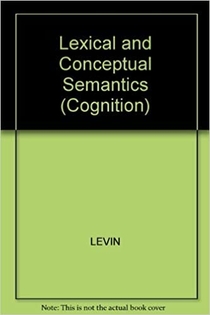
16 Steven Pinker Books - What to Know Before Reading Them
Steven Pinker
All books by Steven Pinker. 16 bestsellers authored by Steven Pinker.
This is a Steven Pinker book list that contains all the books he's written so far.
Why should you read Steven Pinker's books?
Steven Pinker has the talent to explain complicated linguistic and cognitive processes in a comprehensive and accessible, yet entertaining manner.
His research focuses on language and cognition, and he has worked extensively on children's language acquisition. Steven Pinker has received the Troland Research Award from the National Academy of Sciences and two awards from the American Psychological Association for his research in the psychology of language.
He is a member of several scientific societies, including the American Academy of Arts and Sciences and the American Association for the Advancement of Science. "The Language Instinct" was the first book to appeal to a mass readership where he explains the essence of language science and determines its place within computational cognitive science and evolutionary psychology.
The ideas of this book were further developed in other books by Steven Pinker: "Words and Rules", "How the Mind Works", which explores what the mind is, how it develops, how it enables us to see, think, feel, laugh, interact with the outside world, enjoy art and reflect on the mysteries of life.
Steven Pinker books are worth reading, especially his latest works. So, enjoy the Steven Pinker book list!
See all
0
likes
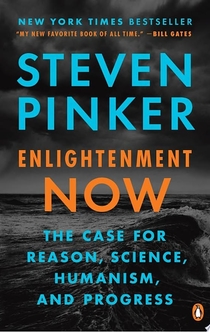
Enlightenment Now
INSTANT NEW YORK TIMES BESTSELLER A NEW YORK TIMES NOTABLE BOOK OF 2018ONE OF THE ECONOMIST'S BOOKS OF THE YEAR"My new favorite book of all time." --Bill Gates If you think the world is coming to an end, think again: people are living longer, healthier, freer, and happier lives, and while our problems are formidable, the solutions lie in the Enlightenment ideal of using reason and science.Is the world really falling apart? Is the ideal of progress obsolete? In this elegant assessment of the human condition in the third millennium, cognitive scientist and public intellectual Steven Pinker urges us to step back from the gory headlines and prophecies of doom, which play to our psychological biases. Instead, follow the data: In seventy-five jaw-dropping graphs, Pinker shows that life, health, prosperity, safety, peace, knowledge, and happiness are on the rise, not just in the West, but worldwide. This progress is not the result of some cosmic force. It is a gift of the Enlightenment: the conviction that reason and science can enhance human flourishing.Far from being a naïve hope, the Enlightenment, we now know, has worked. But more than ever, it needs a vigorous defense. The Enlightenment project swims against currents of human nature--tribalism, authoritarianism, demonization, magical thinking--which demagogues are all too willing to exploit. Many commentators, committed to political, religious, or romantic ideologies, fight a rearguard action against it. The result is a corrosive fatalism and a willingness to wreck the precious institutions of liberal democracy and global cooperation. With intellectual depth and literary flair, Enlightenment Now makes the case for reason, science, and humanism: the ideals we need to confront our problems and continue our progress.
See all
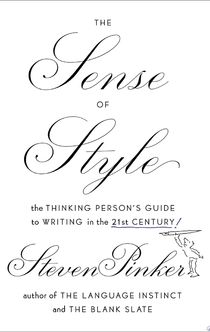
The Sense of Style
“Charming and erudite," from the author of Enlightenment Now, "The wit and insight and clarity he brings . . . is what makes this book such a gem.” —Time.com Why is so much writing so bad, and how can we make it better? Is the English language being corrupted by texting and social media? Do the kids today even care about good writing—and why should we care? From the author of The Better Angels of Our Nature and Enlightenment Now.In this entertaining and eminently practical book, the cognitive scientist, dictionary consultant, and New York Times–bestselling author Steven Pinker rethinks the usage guide for the twenty-first century. Using examples of great and gruesome modern prose while avoiding the scolding tone and Spartan tastes of the classic manuals, he shows how the art of writing can be a form of pleasurable mastery and a fascinating intellectual topic in its own right. The Sense of Style is for writers of all kinds, and for readers who are interested in letters and literature and are curious about the ways in which the sciences of mind can illuminate how language works at its best.
See all

Language, Cognition, and Human Nature
Language, Cognition, and Human Nature collects together for the first time much of Steven Pinker's most influential scholarly work on language and cognition. Pinker's seminal research explores the workings of language and its connections to cognition, perception, social relationships, child development, human evolution, and theories of human nature. This eclectic collection spans Pinker's thirty-year career, exploring his favorite themes in greater depth and scientific detail. It includes thirteen of Pinker's classic articles, ranging over topics such as language development in children, mental imagery, the recognition of shapes, the computational architecture of the mind, the meaning and uses of verbs, the evolution of language and cognition, the nature-nurture debate, and the logic of innuendo and euphemism. Each outlines a major theory or takes up an argument with another prominent scholar, such as Stephen Jay Gould, Noam Chomsky, or Richard Dawkins. Featuring a new introduction by Pinker that discusses his books and scholarly work, this collection reflects essential contributions to cognitive science by one of our leading thinkers and public intellectuals.
See all

The Better Angels of Our Nature
“If I could give each of you a graduation present, it would be this—the most inspiring book I've ever read."—Bill Gates (May, 2017)Selected by The New York Times Book Review as a Notable Book of the YearThe author of Enlightenment Now and The New York Times bestseller The Stuff of Thought offers a controversial history of violence.Faced with the ceaseless stream of news about war, crime, and terrorism, one could easily think we live in the most violent age ever seen. Yet as New York Times bestselling author Steven Pinker shows in this startling and engaging new work, just the opposite is true: violence has been diminishing for millenia and we may be living in the most peaceful time in our species's existence. For most of history, war, slavery, infanticide, child abuse, assassinations, programs, gruesom punishments, deadly quarrels, and genocide were ordinary features of life. But today, Pinker shows (with the help of more than a hundred graphs and maps) all these forms of violence have dwindled and are widely condemned. How has this happened?This groundbreaking book continues Pinker's exploration of the esesnce of human nature, mixing psychology and history to provide a remarkable picture of an increasingly nonviolent world. The key, he explains, is to understand our intrinsic motives--the inner demons that incline us toward violence and the better angels that steer us away--and how changing circumstances have allowed our better angels to prevail. Exploding fatalist myths about humankind's inherent violence and the curse of modernity, this ambitious and provocative book is sure to be hotly debated in living rooms and the Pentagon alike, and will challenge and change the way we think about our society.
See all
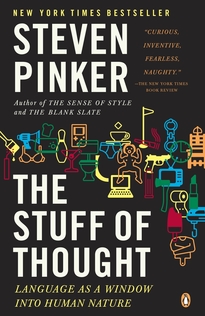
The Stuff of Thought
The Stuff of Thought is an exhilarating work of non-fiction. Surprising, thought-provoking and incredibly enjoyable, there is no other book like it - Steven Pinker will revolutionise the way you think about language. He analyses what words actually mean and how we use them, and he reveals what this can tell us about ourselves. He shows how we use space and motion as metaphors for more abstract ideas, and uncovers the deeper structures of human thought that have been shaped by evolutionary history. He also explores the emotional impact of language, from names to swear words, and shows us the full power that it can have over us. And, with this book, he also shows just how stimulating and entertaining language can be.
See all

Hotheads
A twelve-year-old girl sees her family differently when faced with problems at her new school and near home.
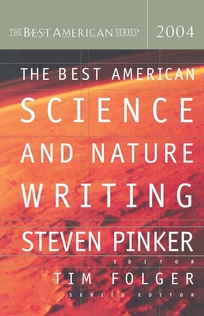
The Best American Science and Nature Writing 2004
Since its inception in 1915, the Best American series has become the premier annual showcase for the country's finest short fiction and nonfiction. For each volume, a series editor reads pieces from hundreds of periodicals, then selects between fifty and a hundred outstanding works. That selection is pared down to the twenty or so very best pieces by a guest editor who is widely recognized as a leading writer in his or her field. This unique system has helped make the Best American series the most respected -- and most popular -- of its kind. The Best American Science and Nature Writing 2004, edited by Steven Pinker, is another "provocative and thoroughly enjoyable [collection] from start to finish" (Publishers Weekly). Here is the best and newest on science and nature: the psychology of suicide terrorism, desperate measures in surgery, the weird world of octopuses, Sex Week at Yale, the linguistics of click languages, the worst news about cloning, and much more.
See all

The Blank Slate
A brilliant inquiry into the origins of human nature from the author of The Better Angels of Our Nature and Enlightenment Now."Sweeping, erudite, sharply argued, and fun to read..also highly persuasive." --Time Now updated with a new afterwordOne of the world's leading experts on language and the mind explores the idea of human nature and its moral, emotional, and political colorings. With characteristic wit, lucidity, and insight, Pinker argues that the dogma that the mind has no innate traits-a doctrine held by many intellectuals during the past century-denies our common humanity and our individual preferences, replaces objective analyses of social problems with feel-good slogans, and distorts our understanding of politics, violence, parenting, and the arts. Injecting calm and rationality into debates that are notorious for ax-grinding and mud-slinging, Pinker shows the importance of an honest acknowledgment of human nature based on science and common sense.
See all

Words and Rules
"If you are not already a Steven Pinker addict, this book will make you one." -- Jared Diamond In Words and Rules, Steven Pinker explores profound mysteries of language by picking a deceptively simple phenomenon -- regular and irregular verbs -- and examining it from every angle. With humor and verve, he covers an astonishing array of topics in the sciences and humanities, from the history of languages to how to simulate languages on computers to major ideas in the history of Western philosophy. Through it all, Pinker presents a single, powerful idea: that language comprises a mental dictionary of memorized words and a mental grammar of creative rules. The idea extends beyond language and offers insight into the very nature of the human mind. This is a sparkling, eye-opening, and utterly original book by one of the world's leading cognitive scientists.
See all
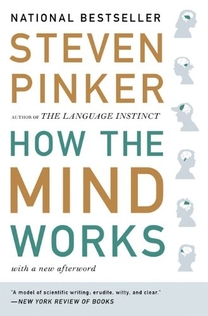
How the Mind Works
"A model of scientific writing: erudite, witty, and clear." —New York Review of Books In this Pulitzer Prize finalist and national bestseller, one of the world's leading cognitive scientists tackles the workings of the human mind. What makes us rational—and why are we so often irrational? How do we see in three dimensions? What makes us happy, afraid, angry, disgusted, or sexually aroused? Why do we fall in love? And how do we grapple with the imponderables of morality, religion, and consciousness? How the Mind Works synthesizes the most satisfying explanations of our mental life from cognitive science, evolutionary biology, and other fields to explain what the mind is, how it evolved, and how it allows us to see, think, feel, laugh, interact, enjoy the arts, and contemplate the mysteries of life. This edition of Pinker's bold and buoyant classic is updated with a new foreword by the author.
See all
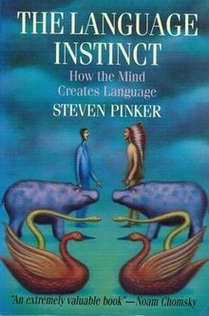
The Language Instinct
'Dazzling...Pinker's big idea is that language is an instinct...as innate to us as flying is to geese...Words can hardly do justice to the superlative range and liveliness of Pinker's investigations'- Independent'A marvellously readable book...illuminates every facet of human language: its biological origin, its uniqueness to humanity, it acquisition by children, its grammatical structure, the production and perception of speech, the pathology of language disorders and the unstoppable evolution of languages and dialects' - Nature
See all

Learnability and Cognition, new edition
A classic book about language acquisition and conceptual structure, with a new preface by the author, "The Secret Life of Verbs."Before Steven Pinker wrote bestsellers on language and human nature, he wrote several technical monographs on language acquisition that have become classics in cognitive science. Learnability and Cognition, first published in 1989, brought together two big topics: how do children learn their mother tongue, and how does the mind represent basic categories of meaning such as space, time, causality, agency, and goals? The stage for this synthesis was set by the fact that when children learn a language, they come to make surprisingly subtle distinctions: pour water into the glass and fill the glass with water sound natural, but pour the glass with water and fill water into the glass sound odd. How can this happen, given that children are not reliably corrected for uttering odd sentences, and they don't just parrot back the correct ones they hear from their parents? Pinker resolves this paradox with a theory of how children acquire the meaning and uses of verbs, and explores that theory's implications for language, thought, and the relationship between them.As Pinker writes in a new preface, "The Secret Life of Verbs," the phenomena and ideas he explored in this book inspired his 2007 bestseller The Stuff of Thought: Language as a Window into Human Nature. These technical discussions, he notes, provide insight not just into language acquisition but into literary metaphor, scientific understanding, political discourse, and even the conceptions of sexuality that go into obscenity.
See all
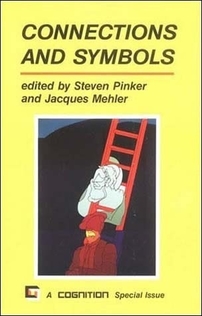
Connections and Symbols
Connections and Symbols provides the first systematic analysis of the explosive new field of Connectionism that is challenging the basic tenets of cognitive science.
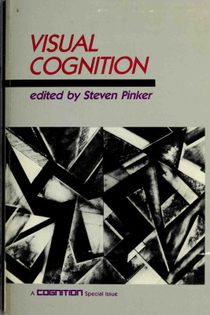
Visual Cognition
These essays tackle some of the central issues in visual cognition, presentingexperimental techniques from cognitive psychology, new ways of modeling cognitive processes oncomputers from artificial intelligence, and new ways of studying brain organization fromneuropsychology, to address such questions as: How do we recognize objects in front of us? How do wereason about objects when they are absent and only in memory? How do we conceptualize the threedimensions of space? Do different people do these things in different ways? And where are theseabilities located in the brain?While this research, which appeared as a special issue of the journalCognition, is at the cutting edge of cognitive science, it does not assume a highly technicalbackground on the part of readers. The book begins with a tutorial introduction by the editor,making it suitable for specialists and nonspecialists alike.Steven Pinker is Associate Professor,Department of Psychology and Center for Cognitive Science at MIT.
See all

Language Learnability and Language Development, With New Commentary by the Author
In this influential study, Steven Pinker develops a new approach to the problem of language learning. Now reprinted with new commentary by the author, this classic work continues to be an indispensable resource in developmental psycholinguistics.Reviews of this book: "The contribution of [Pinker's] book lies not just in its carefully argued section on learnability theory and acquisition, but in its detailed analysis of the empirical consequences of his assumptions." DD--Paul Fletcher, Times Higher Education Supplement "One of those rare books which every serious worker in the field should read, both for its stock of particular hypotheses and analyses, and for the way it forces one to re-examine basic assumptions as to how one's work should be done. Its criticisms of other approaches to language acquisition...often go to the heart of the difficulties." DD--Michael Maratsos, Language"[A] new edition, with a new preface from the author, of the influential monograph originally published in 1984 in which Pinker proposed one of the most detailed (and according to some, best) theories of language development based upon the sequential activation of different language-acquisition algorithms. In his new preface, the author reaches the not very modest conclusion that, despite the time elapsed, his continues to be the most complete theory of language development ever developed. A classic of the study of language acquisition, in any case." DD--Infancia y Aprendizaje [Italy]
See all

